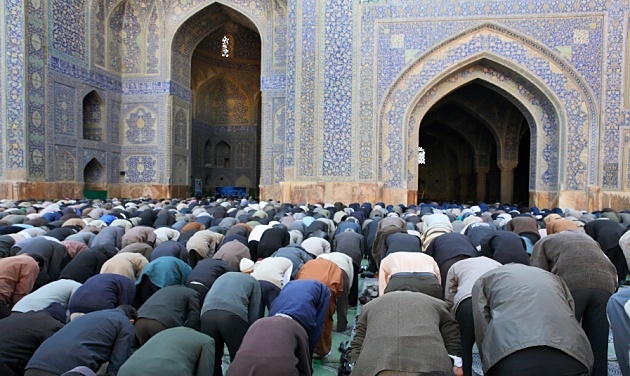September 2, 2013
“What is happening between Sunnis and Shias around the world is a catastrophe. What is happening in Syria is a catastrophe. One voice doesn’t mean a uniformity, but a diversity of respected voices.”
So spoke Tariq Ramadan, professor of contemporary Islamic Studies at Oxford University, at the Islamic Society of North America’s 50th Annual Convention that took place August 30-September 2 in Washington, D.C.
In 2010 Christians noted 100 years of work for unity among the followers of Jesus in what has come to be known as the ecumenical movement. And Muslims are now laying the foundational principles for a corollary movement within their own ranks.
In a session titled “Saved Sect? Theology and Ethics of Pluralism.” Mr. Ramadan and Yasir Qadhi addressed the situation among Muslims where, as in Christianity, there are several branches – Sunni, Shia, Salafi, Sufi, just to name a few schools of thought within their community – with each school seeing itself as rightly guided and laying claim to being the “saved sect.”
As Christians did in the early part of the 20th century, Muslims are now asking themselves: How do we navigate the choppy waters of intrafaith diversity? How do we remain faithful to our particularities while accepting differences? Toward this end, Mr. Ramadan and Mr. Qadhi examined the theology of inclusiveness and the ethics of disagreement in building the beloved community.
Agreement on Essentials, Pacifism, Inclusivism
Mr. Qadhi, an Islamic lecturer and author of several books about Islam, emphasized agreement on the essentials of that faith, granting that “large segments of the umma (Muslim community) don’t care about these schisms, sects and marginal issues. The average Muslim doesn’t need to specialize in these questions. As long as he believes in the six pillars of Islam, prays five times a day and accepts the Qur’an, it will be enough.”
Mr. Qadhi noted that no matter what theological position one holds, the Prophet Mohammad never sanctioned physical violence against someone who holds another position.
Three Conditions
Mr. Ramadan picked up on the understanding of truth. “There is one humanity,” he said, “but Allah also wanted diversity within humanity. Diversity is both a challenge and a necessity. The only truth is with Allah.”
Mr. Ramadan cited three conditions required for all Muslims to live together peacefully: “One, we need to respect the sincerity of the other, to grant the good intention of the other. We must always start with this.
“Two, competence. Talk at the level of your knowledge. If you don’t know, refrain from judging. And if you do know, then exercise your competence with respect.
“Three, be careful. Respect the boundaries.”
In the end, any gains made relative to unity among Christians and unity among Muslims will have positive and far-reaching repercussions within the unity of the human family at large. We will do well to empathically support each other’s efforts and celebrate each other’s progress. In the big picture, there is just one human family, and everyone in it is a child of God.
